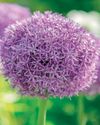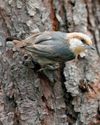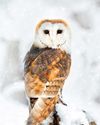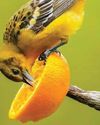
Some time ago, the garden industry started a campaign to promote fall planting. While it was a clever trick to stimulate plant shopping when garden centers were normally quiet, fall planting is actually a bright idea for gardeners too.
Financially, you can save money by carefully choosing closeouts as many retailers try to clear their inventory. Horticulturally, plants have fewer pests and diseases to deal with in fall. In addition, cooler temperatures and moist soil benefit plants as they’re getting established. Even after top growth stops, roots continue to grow until the ground freezes. In spring, these established roots will have a head start because they will have built up the strength to withstand the coming heat of summer. As the expression goes, happy roots mean happy plants.
FOCUSED GROWING
Root growth isn’t a plant’s only priority in spring, says Tyler Johnson, curator of collections and grounds for the Iowa Arboretum and Gardens, and these various needs can create some strain on plants. “If you think spring, plants are leafing out, potentially flowering—depending on the species—and have much more tender new growth,” he says.
この記事は Birds & Blooms の October/November 2020 版に掲載されています。
7 日間の Magzter GOLD 無料トライアルを開始して、何千もの厳選されたプレミアム ストーリー、9,000 以上の雑誌や新聞にアクセスしてください。
すでに購読者です ? サインイン
この記事は Birds & Blooms の October/November 2020 版に掲載されています。
7 日間の Magzter GOLD 無料トライアルを開始して、何千もの厳選されたプレミアム ストーリー、9,000 以上の雑誌や新聞にアクセスしてください。
すでに購読者です? サインイン

Basics of Hydroponics
Use these top tips and plant picks to have a successful soil-free garden

Rooted in Resilience
These hardy perennials will thrive in most zones

Social and Supportive
Brown-headed nuthatches take a helpful approach to raising their young

All About Owl Pellets
And why you should give a hoot about them

Ask the Experts
Advice from our pros about houseplants, bird feeding and more

BRING THE OUTDOORS IN
Making a terrarium is about as close as you can get to a Zen DIY project. Once you have gathered the proper materials and squared away your plant selections, it's as simple as layering it all together and watching your mini ecosystem thrive. Here, I'll walk you through my foolproof process and cover all the required elements for good filtration, healthy soil, strong root growth and resistance against fungus and disease.

GROW THIS. NOT THAT
Six easy-to-grow houseplants—and six that may not be the right choice for you

Winter MAGIC
Forecasts may be frigid, but grab your binoculars because birding opportunities are still incredible

Sense or Nonsense? - Why some birds can taste and smell - but others can't
Does a porcelain berry taste like a blueberry to a gray catbird? Does a block of lard smell like frying bacon to a northern flicker? The short answer is no. While some avian species do have a well-adapted sense of taste or smell, they can't distinguish between flavors and odors the way humans can. They're not picking up every ingredient in the suet you put out, says José Ramírez-Garofalo, an ornithology researcher at Rutgers University in New Jersey and the director of Freshkills Biological Station in Staten Island, New York.

Maple Mania - Amazing facts about this fall foliage mainstay
Amazing facts about this fall foliage mainstay